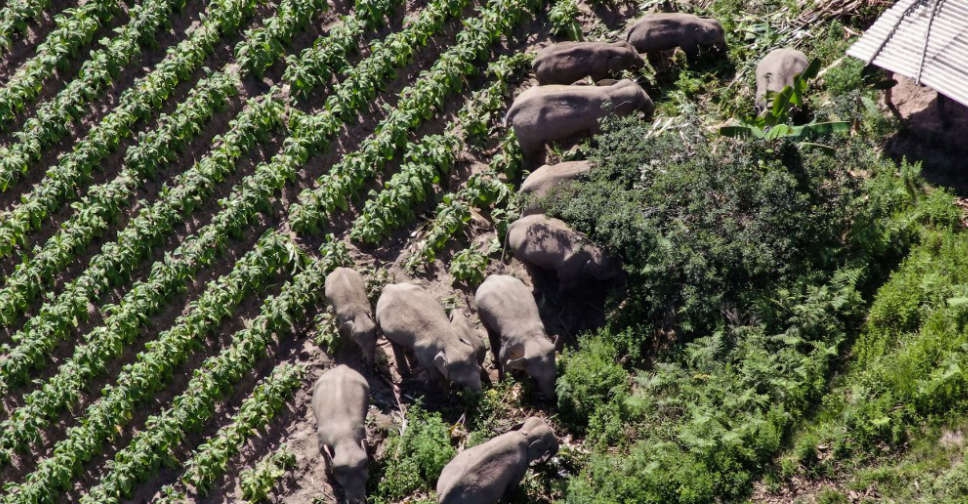
Fourteen wild elephants are heading south towards their protected habitat in southwest China's Yunnan province following a 1,300-km trek that captured the public's imagination.
Wildlife protection officials told a press briefing the elephants safely crossed a bridge over the Yuan River, returning south towards a nature reserve administered by the city of Puer.
An emergency committee set up to handle the wild elephants, used electric fences and bait and laid artificial roads to ensure the elephants took the correct route.
Yang Yingyong, a member of the committee, told reporters the migration route was "scientifically planned".
The committee will "strive to allow the elephants to return to their habitat as soon as possible and thrive," he said.
Yunnan deployed more than 25,000 police and staff and 1,500 emergency vehicles to track and feed the elephants and guarantee public safety, said Wan Yong, head of the provincial forestry commission.
More than 150,000 people were evacuated along the migration route and more than 5 million yuan ($771,000) in insurance funds disbursed to cover property damage, he said.
A herd then consisting of 16 elephants left their home in Xishuangbanna 300 km further south in March last year and eventually settled in a protected habitat in Puer.
In April this year, 15 of the elephants left Puer and meandered more than 1,300 km through the cities of Yuxi and Honghe before reaching the outskirts of the provincial capital of Kunming in June.
State protection efforts have enabled the wild elephant population of Xishuangbanna to double since 1978. Wan said a ban on hunting activities had also made elephants more willing to enter human communities.
Experts say natural habitats have shrunk and become fragmented due to rapid urbanisation, new transportation infrastructure and the extension of commercial farming.
Shen Qingzhong, an expert with the Xishuangbanna National Nature Reserve Management Bureau, said it is likely the elephants will head north again in the future.
"The migration and spread of the Asian elephant population is inevitable," he told the briefing.

 Australian police charge five teenagers in Sydney cleric's stabbing
Australian police charge five teenagers in Sydney cleric's stabbing
 India inspects spice makers over alleged contamination
India inspects spice makers over alleged contamination
 Israeli media predict offensive in Gaza's Rafah soon
Israeli media predict offensive in Gaza's Rafah soon
 Russia detains ally of Defence Minister Shoigu for corruption
Russia detains ally of Defence Minister Shoigu for corruption
 Trump meets with Japan's former prime minister Aso
Trump meets with Japan's former prime minister Aso




